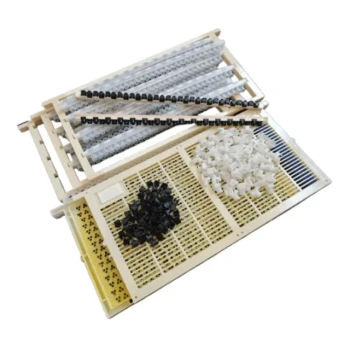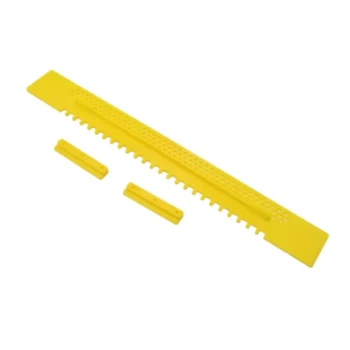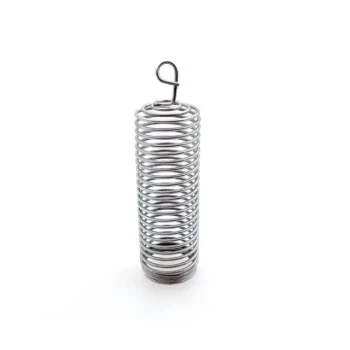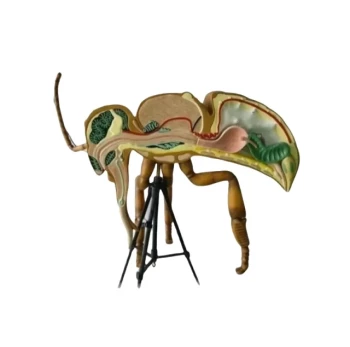A nucleus colony, often called a 'nuc,' is a small, pre-established honey bee colony. It contains a proven queen, several frames of bees, developing brood (eggs, larvae, and pupae), and frames of food stores like honey and pollen. New beekeepers prefer nucs because they offer a significant head start, providing a functioning, ready-to-grow hive from day one.
Choosing a nucleus colony is less about buying bees and more about acquiring a functioning, ready-to-grow community. This established foundation significantly reduces the initial risks and challenges that are common when starting a new hive.
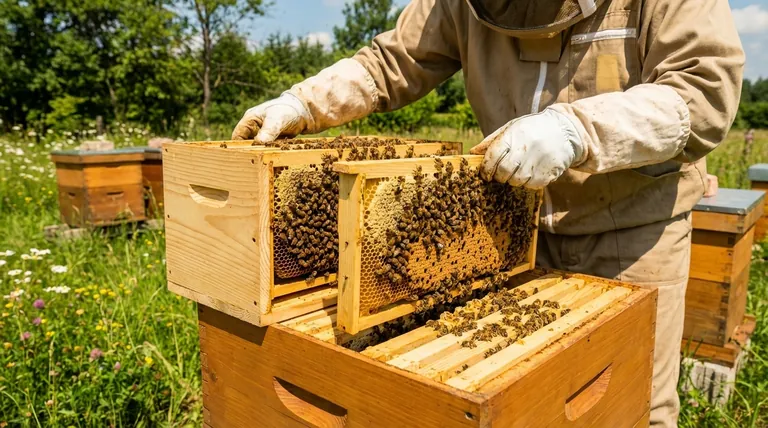
What's Inside a Nucleus Colony?
A nuc is essentially a miniature version of a full-sized hive. The components are already working together as a cohesive unit, which is its primary advantage.
A Proven, Laying Queen
The queen in a nuc has already been accepted by the worker bees and is actively laying eggs. This eliminates the critical risk of a new colony rejecting its queen, which can be a major setback.
Frames of Brood
The nuc includes frames with brood in all stages of development. This means new worker bees are constantly emerging, ensuring the colony's population grows rapidly and without interruption.
A Dedicated Workforce
You receive a population of adult worker bees already performing all the necessary tasks—foraging for nectar, caring for the brood, and defending the hive. They don't have to start from scratch building comb.
Built-in Food Reserves
The inclusion of frames containing pollen and honey provides the colony with immediate access to essential food. This pantry is crucial for fueling their initial expansion into a full-sized hive.
The Key Advantage: A Head Start on Success
Starting with a nuc is like starting a race several laps ahead. The colony's existing structure and momentum provide a powerful advantage over other methods, like installing a package of loose bees.
Immediate and Explosive Growth
Unlike package bees, which must build comb and wait for the first generation of brood to hatch, a nuc has a continuous cycle of new bees emerging immediately. This allows the colony to expand its population much faster.
Reduced Queen-Related Problems
The most common point of failure for a new hive is the queen. With a nuc, the queen is already established, creating a stable social structure from the moment you install it.
A Template for a Healthy Hive
For a new beekeeper, a nuc provides an invaluable visual lesson. You can see what a healthy brood pattern looks like and how the bees organize their resources, setting a clear standard for what to look for during future inspections.
Understanding the Trade-offs
While highly recommended for beginners, nucs are not without their considerations. Objectivity requires understanding both the benefits and the potential downsides.
Higher Initial Cost
A nucleus colony is typically more expensive than a package of bees. You are paying a premium for the established frames, brood, and the reduced risk that comes with a proven colony.
Availability and Timing
Nucs are often not available until later in the spring, as the supplier needs time for the colony to build up. Their availability can also be limited depending on your local beekeeping community.
Potential for Inherited Issues
Because you are acquiring frames from another beekeeper's operation, there is a small risk of inheriting pests or diseases, such as Varroa mites. Sourcing your nuc from a reputable, trusted supplier is absolutely critical.
Making the Right Choice for Your Goal
Selecting how you start your first colony is one of the most important decisions you'll make as a beekeeper.
- If your primary focus is minimizing risk and ensuring first-year success: A nucleus colony is the definitive choice, providing a stable foundation that accelerates hive development.
- If your primary focus is keeping initial costs as low as possible: A package of bees might be more suitable, but you must be prepared for a slower start and a higher risk of queen failure.
- If your primary focus is long-term sustainability and expansion: Learning to create your own nucs from established hives is an essential skill for managing your apiary, preventing swarms, and replacing losses.
Ultimately, starting with a nuc invests in a functioning system, not just a collection of individuals, setting you on a clearer path to a thriving apiary.
Summary Table:
| Component | Benefit for New Beekeepers |
|---|---|
| Proven, Laying Queen | Eliminates the risk of queen rejection, ensuring colony stability. |
| Frames of Brood | Provides immediate population growth with a continuous cycle of new bees. |
| Adult Worker Bees | Includes a ready workforce that is already foraging and maintaining the hive. |
| Food Reserves (Honey & Pollen) | Offers built-in nutrition, fueling rapid expansion into a full-sized hive. |
Ready to build a thriving apiary with confidence?
Starting with a high-quality nucleus colony is the first step toward successful beekeeping. At HONESTBEE, we supply commercial apiaries and beekeeping equipment distributors with the reliable supplies and equipment needed to support healthy, productive hives from day one.
Let us help you lay the foundation for your success. Contact our expert team today to discuss your wholesale needs.
Visual Guide
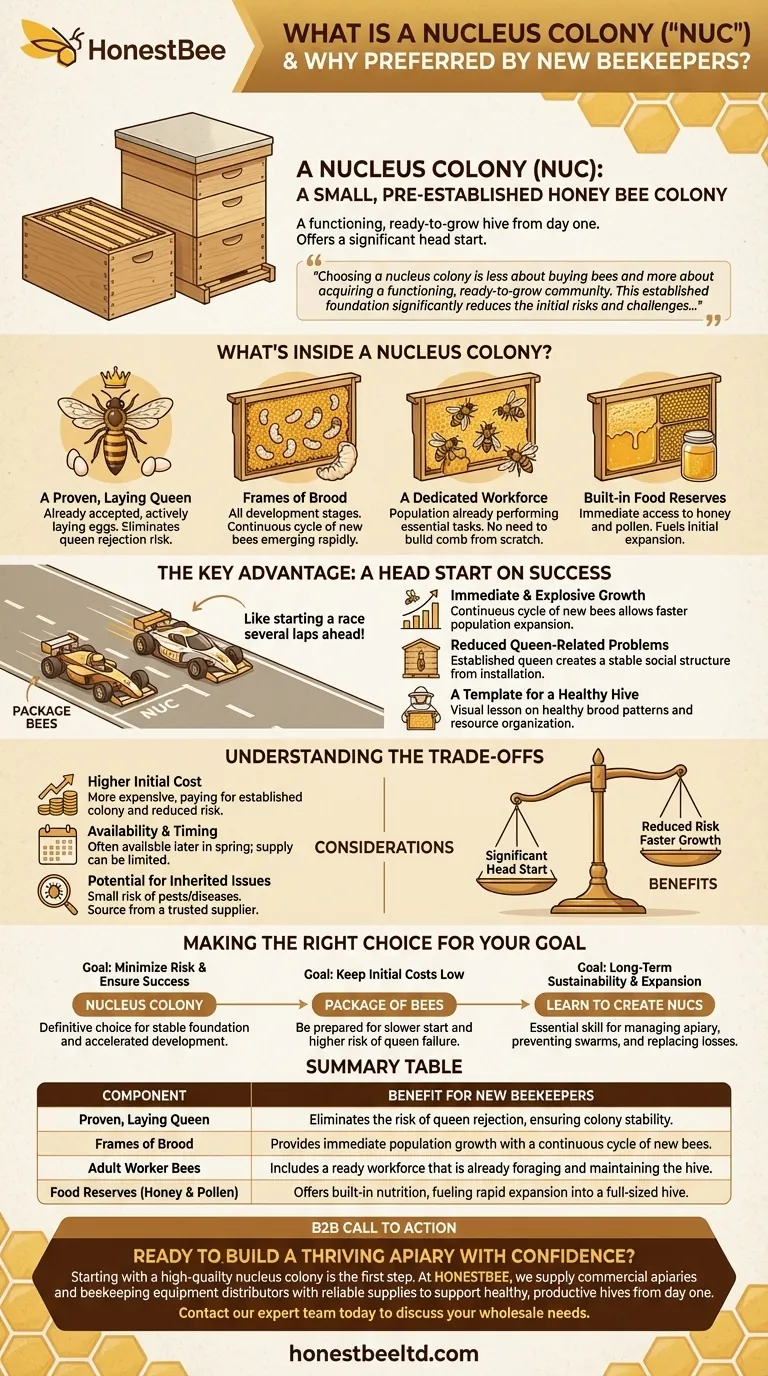
Related Products
- No Grafting Queen Rearing Kit: System for Royal Jelly Production and Queen Rearing
- Professional Galvanized Hive Strap with Secure Locking Buckle for Beekeeping
- Jenter Queen Rearing Kit Complete Set for Bee Breeding
- Nicot Queen Rearing Kit for Beekeeping and Grafting in Nicot System
- Langstroth Honey Bee Box Hive Boxes for Different Depths
People Also Ask
- What technical advantages do professional Queen Rearing Kits provide? Maximize Apiary Yields and Genetic Quality
- What factors determine the necessary hive configuration for an apiary? Optimize Hive Setup for Better Colony Survival
- What production challenges are addressed by multi-level Rearing Bars? Maximize Queen Quality & Hive Output
- How does a double-screened board function within a queenright banking system? Master Pheromone Management for Your Hive
- How does the genetic identification of honeybee populations influence the selection of beekeeping tools? Precision Gear Guide
